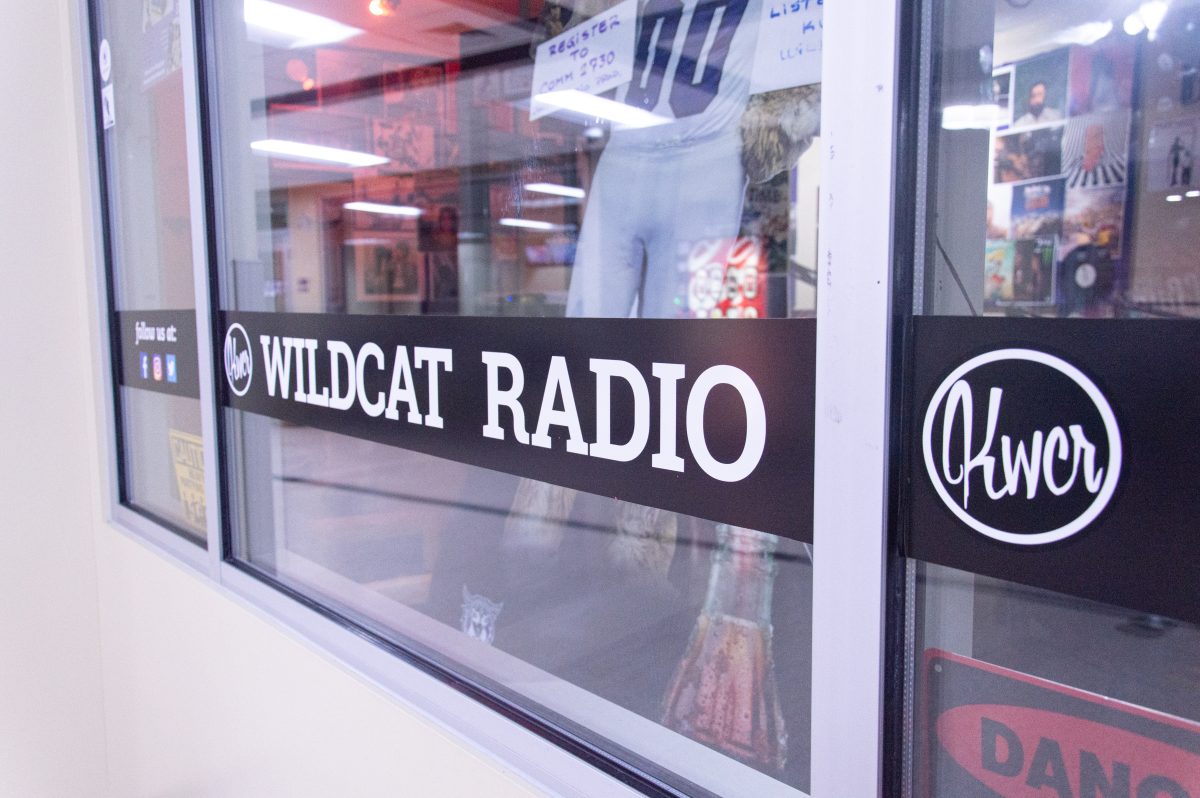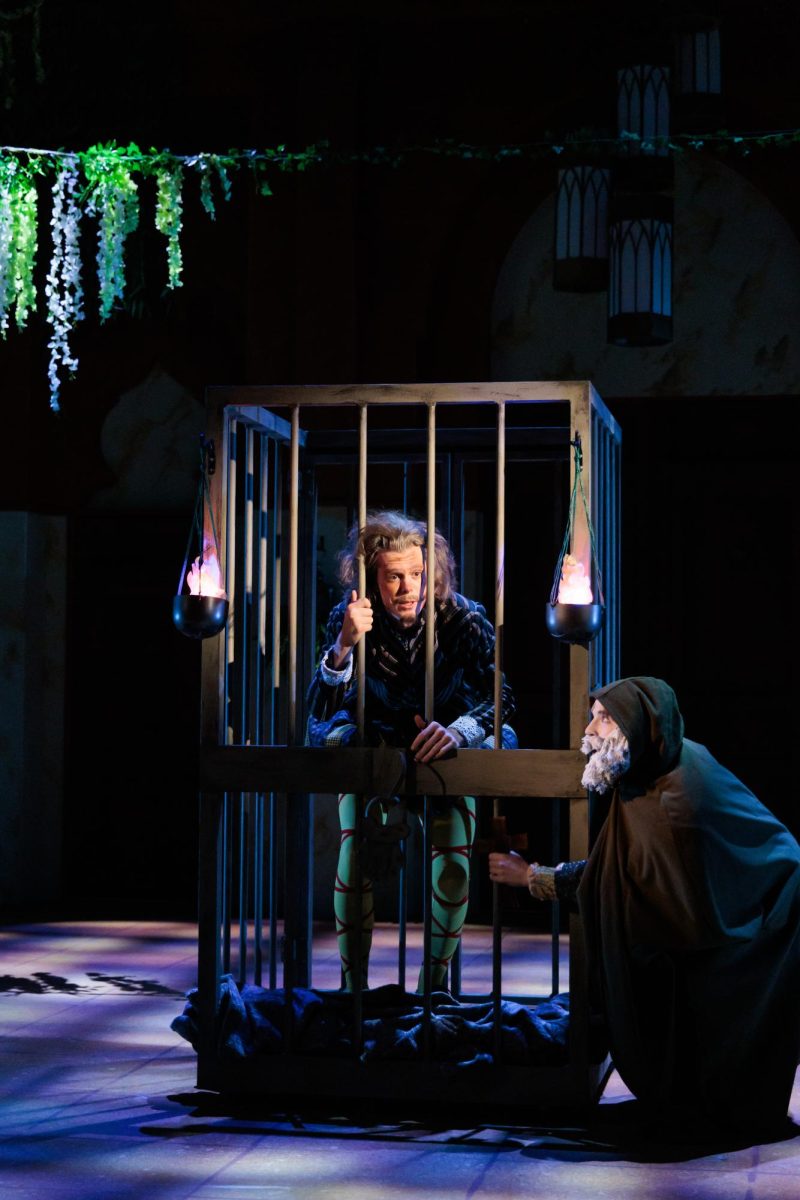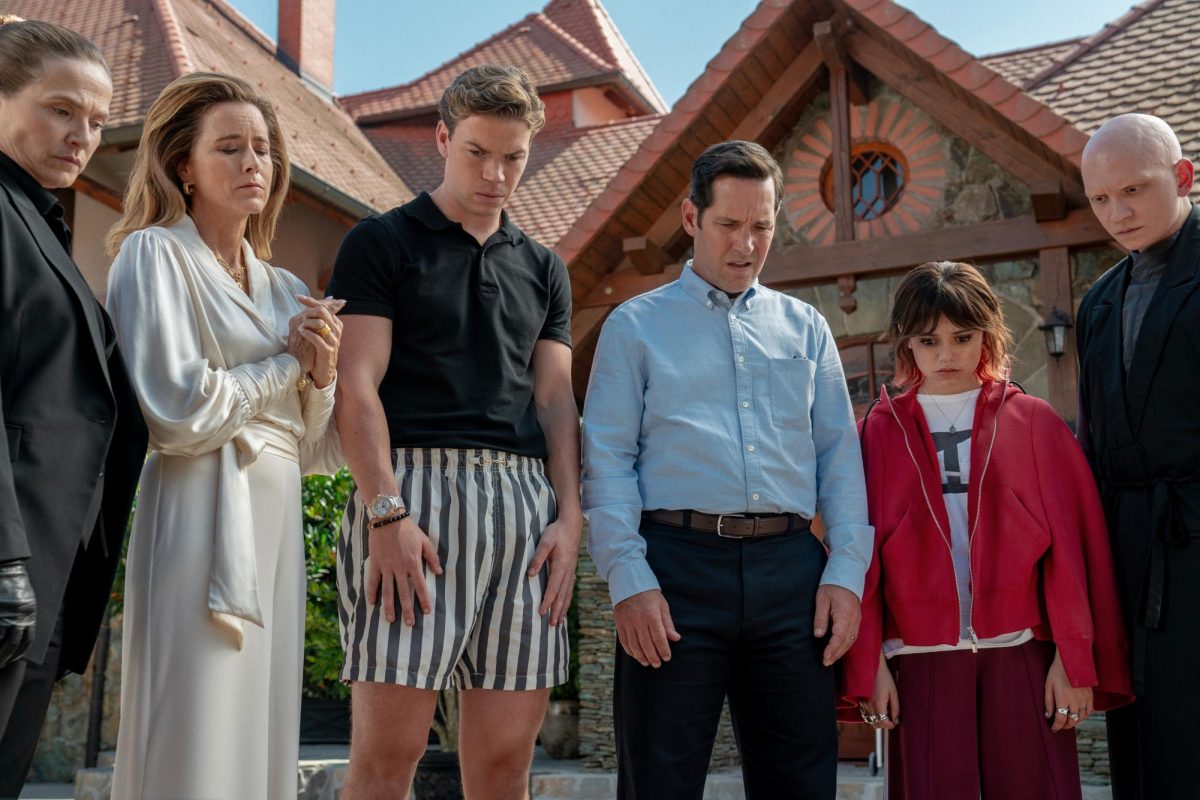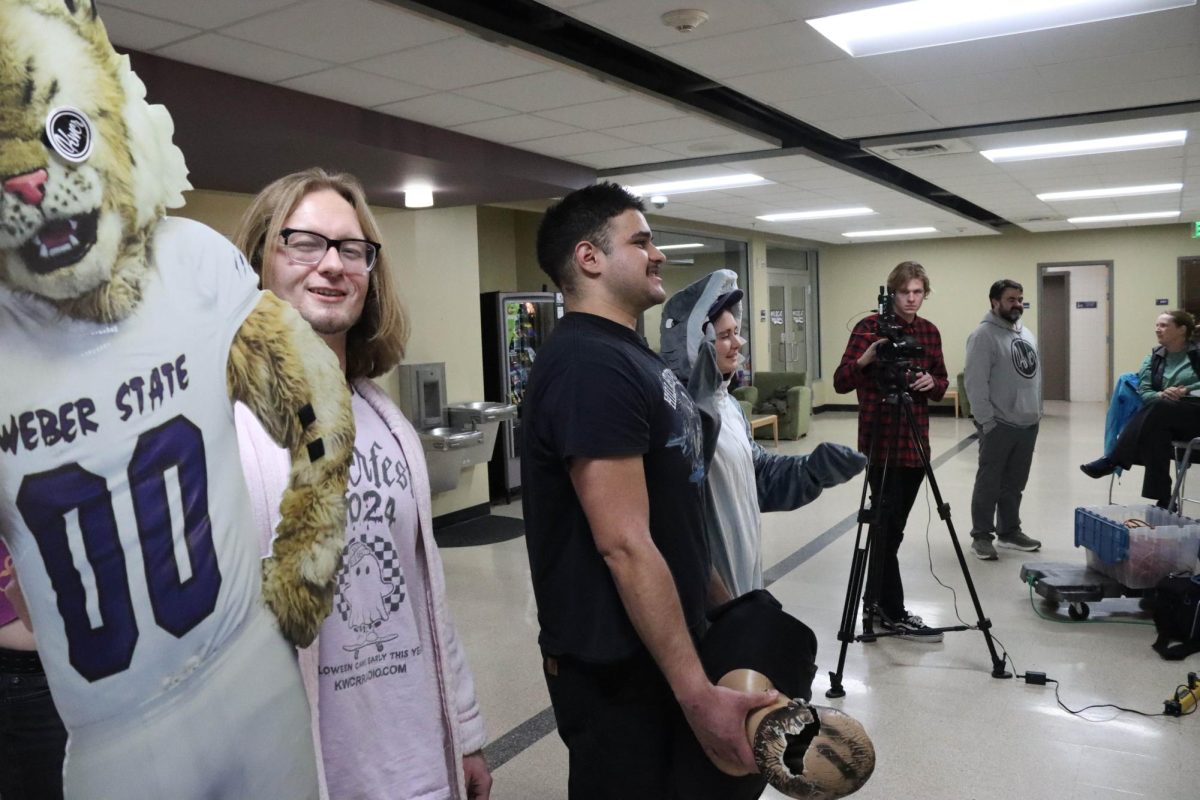Walking into the theater, I come face-to-face with two curving staircases filled with audience members eager to take their seats. Other patrons are sitting in the Fireplace Lounge listening to the piano playing Broadway ballads to set the mood.
After a dinner with my father, I am ready to sit down and watch the musical just to avoid his fatherly love, aka criticism. The two-minute bell pings letting the dawdlers know the show is about to start. Lights in the theater dim, and the overture to Oklahoma! begins.
People in the audience are still trying to finish their last sentences as if they will never have the opportunity to speak again, but as the overture ends, a hush sets upon the theater. Then, floating through the air, the first unaccompanied sung notes of the show remind me of why I love the theater.
After dinner conversations that revolved around my dwindling finances, I was ready for this musical. For those of you who haven’t seen Oklahoma!, the musical is set in the territory of Oklahoma before it has officially been declared a state. The central plot revolves around a love triangle between the hero, Curly, the heroine, Laurey, and the villain, Jud. Other characters such as Aunt Eller and the hysterical peddler, Ali Hakim add depth and fun to the show.
The character that I found most intriguing, however, was the “villain.” If I was a younger audience member, I would have seen Jud as the bad man trying to split apart the two lovebirds, but instead, my heart went out to him.
Jud is a character who has had a rough life. The audience only gets a mere blip into Jud’s past, but it’s obvious he doesn’t have any family or friends. He’s the kind of person who sees himself as a victim to the world, which he may very well be.
To add insult to this already-injured person, Curly sings, “Pore Jud Is Daid,” a song in which our protagonist encourages Jud to hang himself, arguing that people will be sad over Jud’s sudden passing. While pondering what Curly has just told him, Jud sings, “Lonely Room,” during which he realizes that he can take matters into his own hands, the first matter being Laurey.
Disquieting scenes such as this one were sprinkled throughout Oklahoma!, reminding the audience of America’s value on being hardy despite overwhelming obstacles. This mentality sounds appealing, maybe even morally sound, but is it? Is it reasonable for us to expect oppressed and vulnerable people to pick themselves up by their bootstraps? Is being hardy simply a matter of choice?
No matter your answers to these questions, this musical will incite a range of emotions and hopefully make you think a little just as any good art should. If you have the chance and can still get tickets, Hale Center Theatre is running Oklahoma! until October 3.
“Great art — or good art — is when you look at it, experience it and it stays in your mind” -Damien Hirst


















